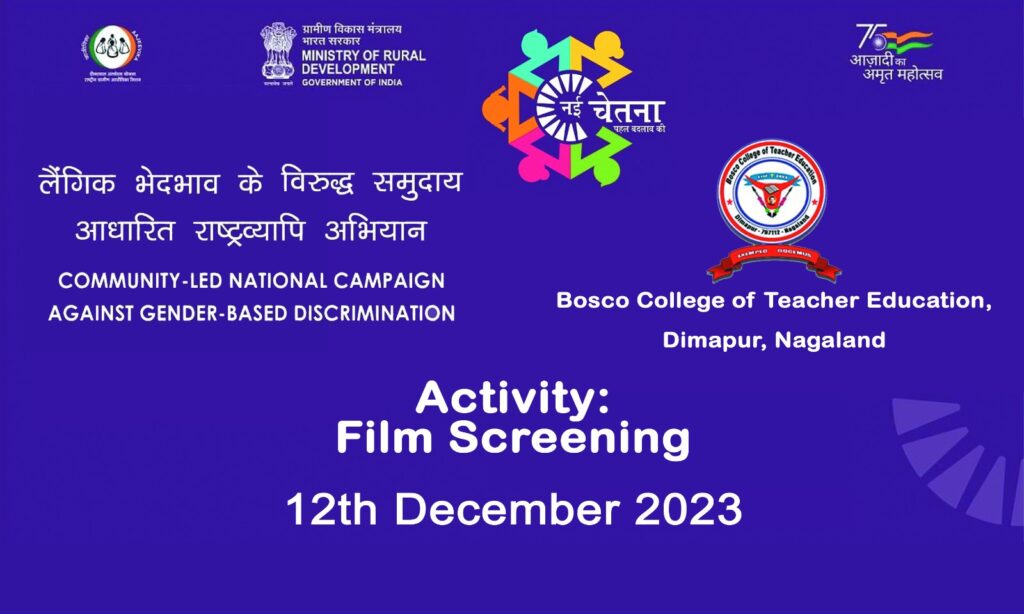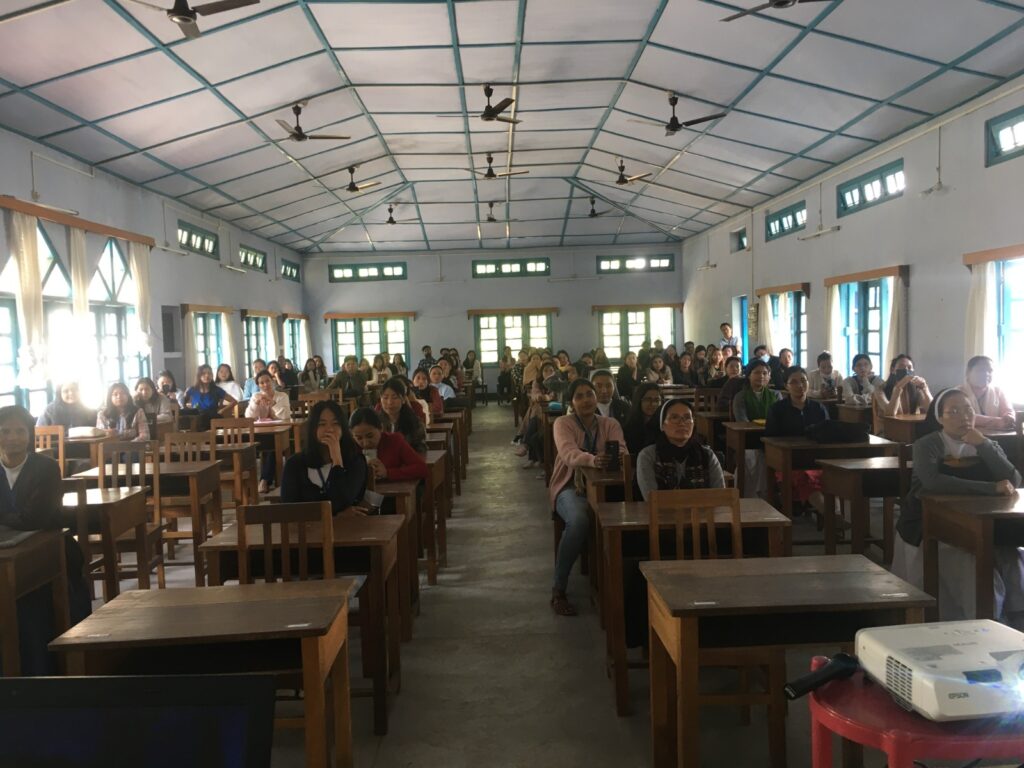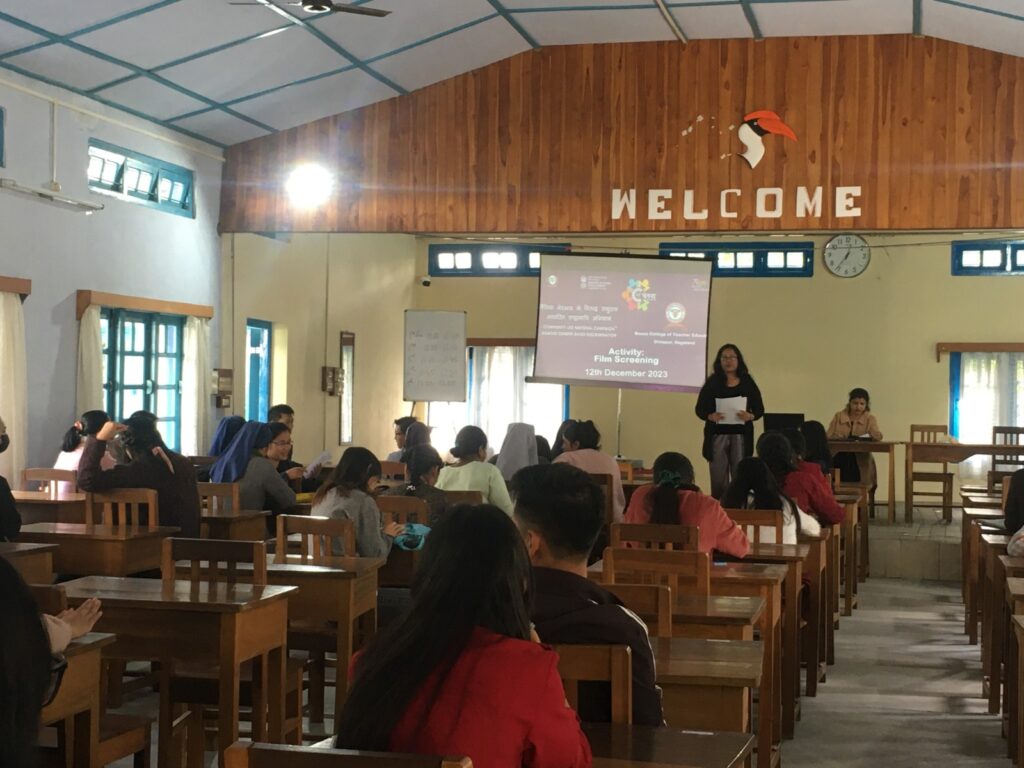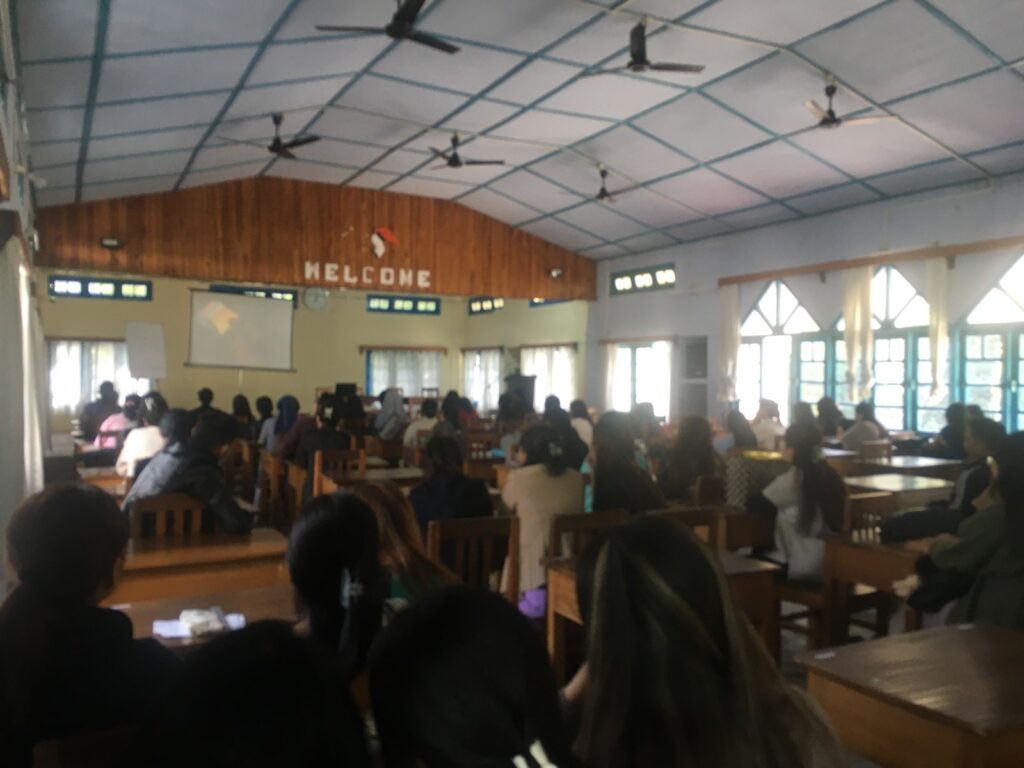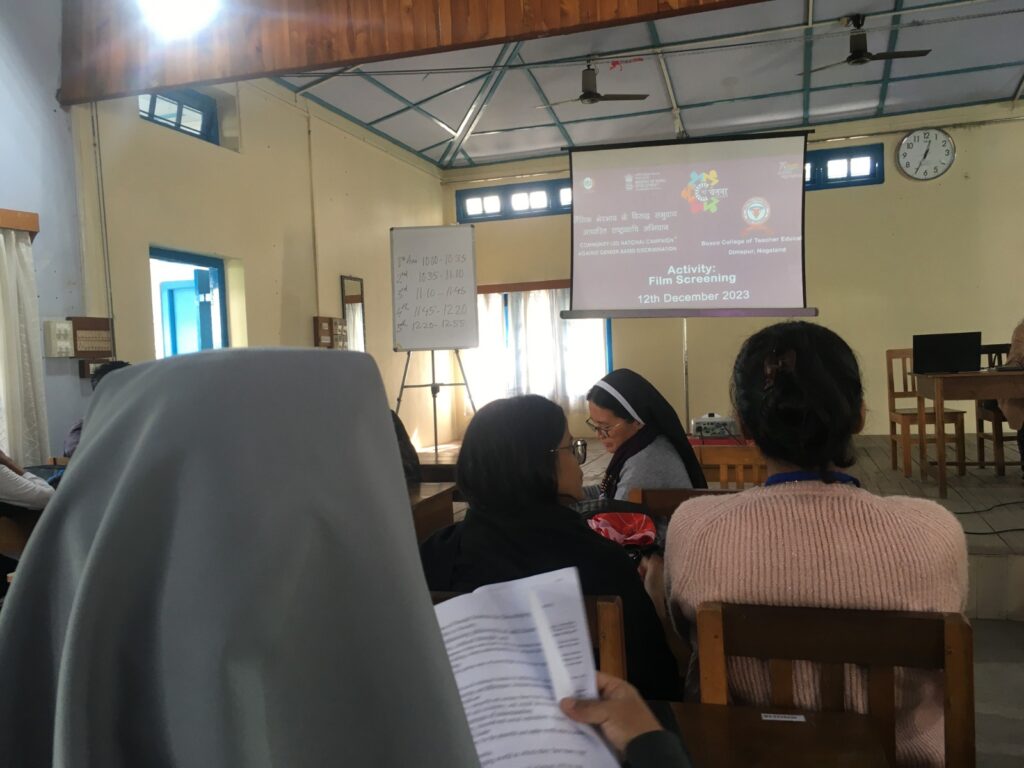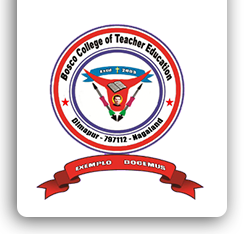As part of the ‘Nayi Chetna’ celebration at Bosco College of Teacher Education in Dimapur, Nagaland, a thought-provoking event unfolded—the screening of the short film ‘Muskan’ on 12th December 2023. The film served as a crucial component in the broader initiative aimed at sensitizing women about their rights, with a specific focus on fostering gender equality. This report delves into the significance of the film screening, highlighting its role in creating awareness, promoting gender equality, and empowering students.
Film Screening Overview: The film screening of ‘Muskan’ marked a pivotal moment in the ‘Nayi Chetna’ celebration, engaging students in an impactful visual narrative that explored the nuances of gender equality. ‘Muskan’ was chosen deliberately for its ability to resonate with the college’s mission of promoting awareness and empowerment among women. The film addressed critical aspects of gender rights, responsibilities, and opportunities, aligning with the broader goals of the ‘Nayi Chetna’ initiative.
Nayi Chetna and Gender Equality: ‘Nayi Chetna’ encapsulates the spirit of awakening and renewal, seeking to sensitize women about their rights and, more specifically, about the importance of gender equality. Gender equality is not merely a concept; it is a fundamental principle that encompasses the rights, responsibilities, and opportunities of individuals, allowing them to lead lives of dignity and contributing to societal harmony. The overarching aim is to eliminate gender disparities and educate students about the importance of equality, irrespective of gender.
Film as a Medium for Social Change: The choice of a short film as a medium for conveying the message of gender equality is strategic. Cinema has the power to evoke emotions, stimulate critical thinking, and leave a lasting impact on the audience. ‘Muskan’ served as a cinematic catalyst, stirring reflections on societal norms, gender roles, and the need for change. By engaging students through visual storytelling, the film aimed to initiate meaningful conversations about the challenges women face and the importance of dismantling gender-based stereotypes.
Creating Awareness and Empathy: The film screening was not just an event; it was an opportunity to foster awareness and empathy among students. ‘Muskan’ shed light on real-life scenarios, portraying the struggles, triumphs, and aspirations of women. Through the characters and their narratives, students were encouraged to empathize with the challenges faced by women in different contexts, fostering a deeper understanding of the need for gender equality.
Educational Impact: Beyond its emotional resonance, the film screening contributed significantly to the educational landscape of Bosco College of Teacher Education. It provided a platform for discussions, allowing students to critically analyze societal norms and reflect on their roles as future educators. The film served as a catalyst for dialogue, encouraging students to question preconceived notions and promoting a more inclusive mindset. The film screening of ‘Muskan’ at Bosco College of Teacher Education, Dimapur, as part of the ‘Nayi Chetna’ celebration, stands as a testament to the institution’s commitment to empowering students with knowledge and fostering a culture of gender equality. By using cinema as a tool for social change, the event successfully created awareness, initiated crucial conversations, and left a lasting impact on the minds of the students. As the echoes of ‘Muskan’ reverberate through the college corridors, it is evident that such initiatives play a pivotal role in shaping the attitudes and perspectives of future educators. The ‘Nayi Chetna’ celebration, enriched by the powerful storytelling of ‘Muskan,’ not only sensitized students about women’s rights but also inspired them to be advocates for gender equality, contributing to the creation of a more inclusive and equitable society.
